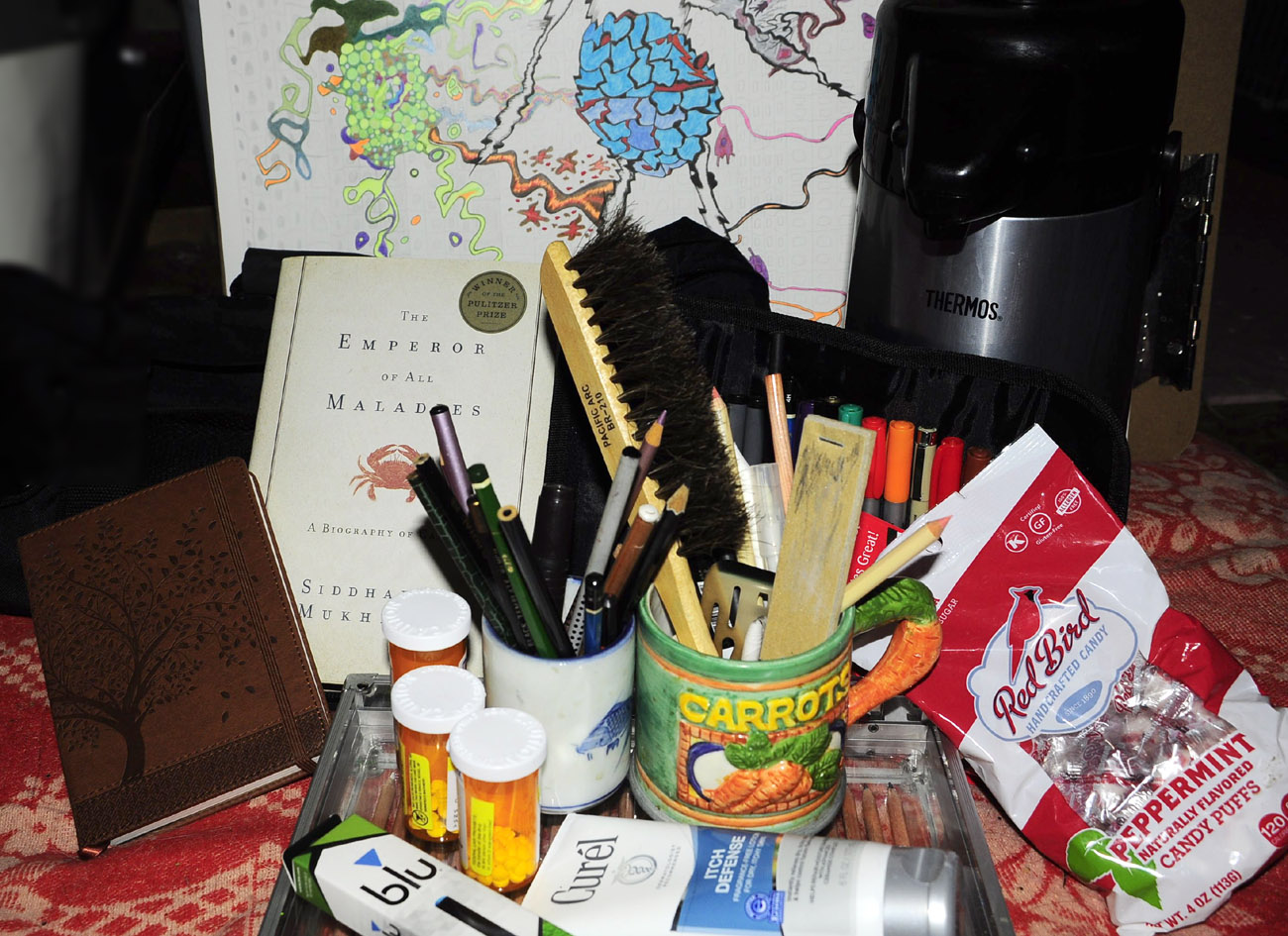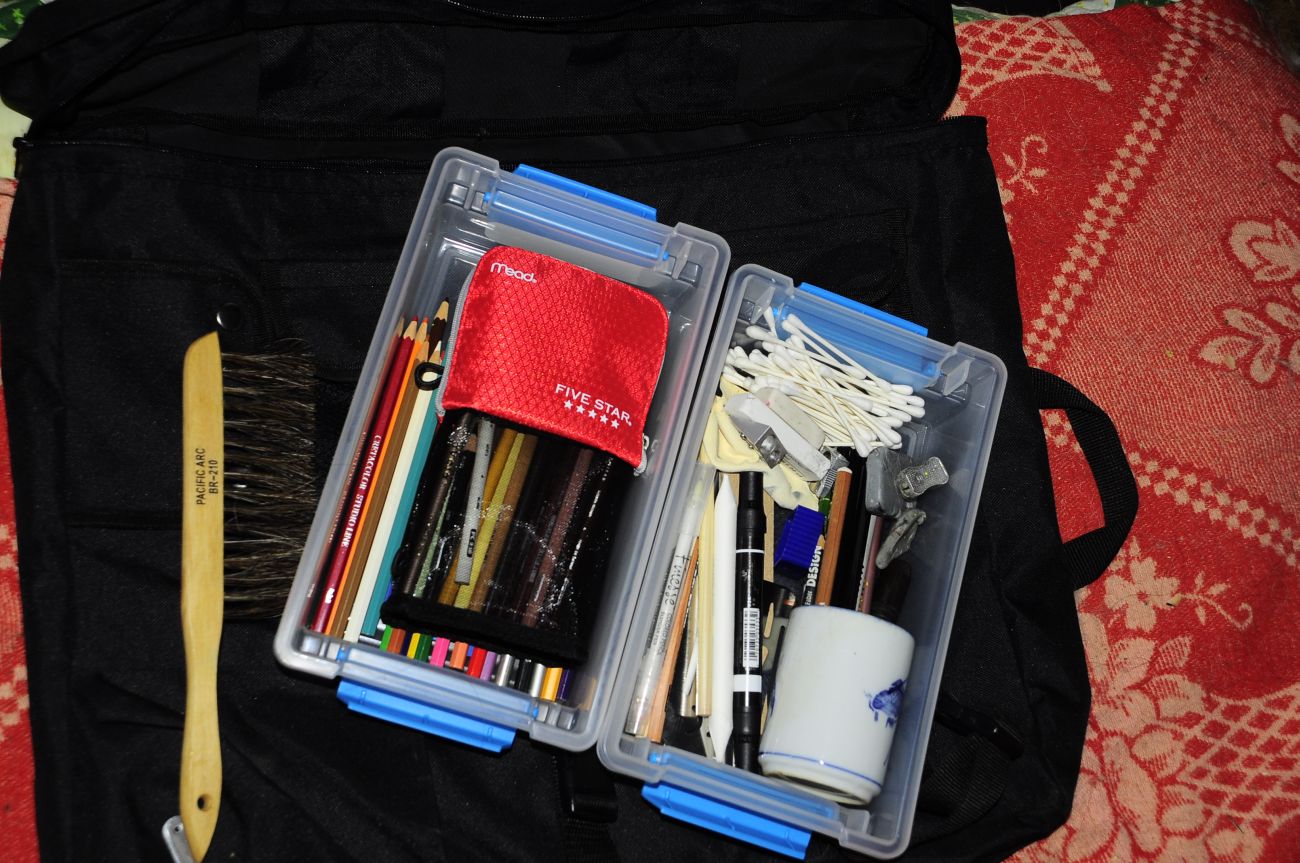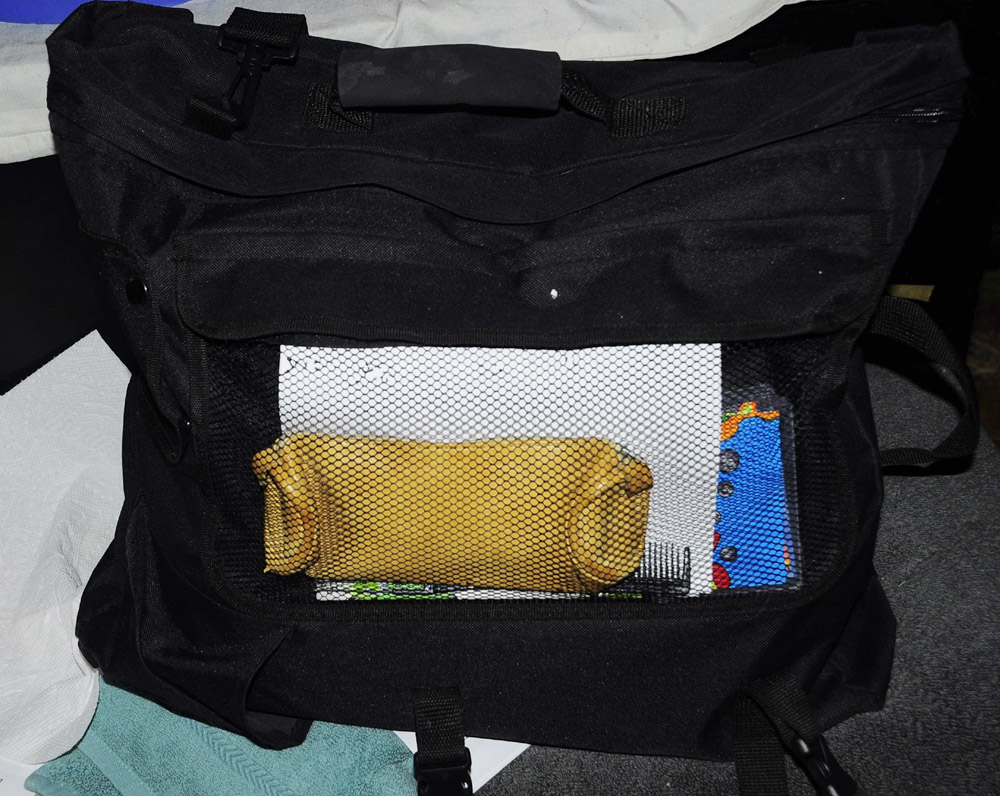
Seeing as today is chemo day, seemed appropriate to write about Chemo Brain. Yep, that’s a thing. Doesn’t set in right away, so you think to yourself that it’s just normal forgetfulness or spacing out. Then it gets more intense, by magnitudes of order. If you’re taking meds at the same time, you might seriously start to question your sanity or whether or not you have a brain at all. Chemo brain is one world class, gigantic brain fart. Generally speaking, being forgetful or zoning out isn’t a big deal, but it can be dangerous at times – being in the kitchen or driving, frinst. For the most part, it’s manageable. Start keeping lists, and write things down when you think of them, else it will be out of your head 5 seconds later, often to never return. So, first thing, get yourself a nice little notebook & pen, or a pocket recorder (or set up your phone or tablet for note-taking).
You don’t have to have extra stuff with you when you go for infusion, but a lot of people prefer to have the extras. First, catch your bag. :) What kind of bag best suits is up to each person, but if you’re looking around for a nice gift for a friend or loved one with cancer, or their caretaker, a nice, large bag with plenty of compartments and pockets is a good one. Ideas for stocking the bag: individual packs of tissues, cough drops or other hard candies, small pack of drinking straws, fragrance free lotion, folding headphones, pill case, notebooks or journal, pens or pencils, and if you know their taste in reading material, books and/or magazines. If they like to draw, a pad of good paper, pencils or markers. Drinks – you always need those. While there’s usually a good assortment available in most chemo suites, if you’re fussed, you can take your own. A bottle or two of Powerade or the like is welcome; I take a couple bottles of boost, and as we like good coffee, we take the giant Thermos with us. So, depending on taste, those are all good things to gift along with a bag. A special mug can be nice, too. I have my Fuel Rats, thanks to Marcus. If someone likes to knit, crochet, or embroider, a bag specifically made for that sort of thing is great. Rather than buying knitting/crochet/embroidery supplies, a gift certificate would be most welcome.
The more organized you can be, the easier chemo days go. Having a dedicated Chemo Bag can go a long way in easing the day, you just have to grab it and go. I end up having to switch bags about, depending on what I’m going to be working on that particular day. I usually prefer something smaller than my art bag, but sometimes, it’s the only thing for one specific day. So, getting everything together on Tuesday:


When your friend or loved one tends toward a complete blank on things, don’t be surprised, and please, don’t chide. It’s difficult enough realizing that your brain on chemo has more in common with Swiss cheese, and you keep wondering if you’ll ever get back to what passes for normal. Caretakers can help by keeping all the vital info, appointments, med lists, and all that stuff. It’s very important there’s back up on all that. Just today, I found myself so grateful Rick had put all the upcoming appointments on his phone, because I didn’t know where the latest raft of paperwork was, nor any idea of what time we’d have to leave in the morning. Turns out lab is at 9 am, so we have to leave at 7:45 am. It’s also very important to be extra nice and thoughtful towards your caretaker when they keep asking if you’ve remembered everything, because they aren’t trying to be annoying, so even if you feel like snapping, don’t.
Cancer treatment-related cognitive impairment, cancer-therapy associated cognitive change, or post-chemotherapy cognitive impairment – these are phrases you may hear from medical, and they all mean Chemo Brain. The primary problems are memory lapses, trouble concentrating or focusing, difficulty remembering names, dates, details, events, inability to multitask, disorganized, slower thinking, having difficulty with common words (can’t remember specific words when talking or writing). The problem with remembering common words has hit me particularly hard, and it’s been making me a bit crazed, sitting there, and trying to remember a word I know, and know well. In my head, I can see a circle of words, with a fuzzed out blank where the word I want should be. I often find myself starting a specific task, only to get distracted, start something else, then remembering and going back to the first, lather rinse repeat. It’s frustrating as fuck, and makes me feel very frazzled and stressed. Just getting through one day’s regular tasks is exhausting.
Naturally, chemo brain varies from one individual to the next, and while most people experience temporary effects, others end up with very long-term effects, sometimes to the point they cannot return to work. (If this is the case, disability applies.) The effects of chemo brain are amplified by every infusion and radiation. While the person undergoing treatment becomes aware of changes in their thinking, they may not say anything to anyone. This is not something which is terribly easy to talk about, and there’s a strong impulse to try and cover it up the best you can. As well as being frustrating, it’s deeply embarrassing. Technically, chemo brain is defined as a decrease in mental sharpness, which, along with forgetfulness includes difficulty in finishing tasks and learning new skills. While chemo brain is not fully understood, there is and has been research into it, and with most things, there can be a number of factors:
The cancer itself.
Other drugs used as part of treatment, such as steroids, anti-nausea, or pain medicines.
Surgery and the drugs used during surgery (anesthesia).
Low blood counts.
Sleep problems.
Infection.
Tiredness (fatigue).
Hormone changes or hormone treatments.
Other illnesses, such as diabetes or high blood pressure.
Nutritional deficiencies.
Age.
Depression.
Stress, anxiety, worry, or other emotional pressure.
One thing which has happened to me is a sense of mental exhaustion. Thinking has become difficult enough that I don’t really want to do much of it unless I have to do so. As tempting as it might be sometimes, to just sit in a corner and vegetate, that does not help. It’s important and helpful to stay engaged in one way or another. If you do social things on the ‘net, keep doing them. Read, chat with people. If you write on the ‘net, keep doing that too, even when it seems to be an insurmountable task. If you’re a reader, keep reading. Read, read, read. It does not matter if your reading speed has seriously slowed down along with your comprehension rate. The more you read, the more you keep that at bay, and make sure your brain is exercised. If you find you have trouble concentrating, try audio books. Listen to music. If you like puzzles of any kind, keep doing those too. Resist the quiet – I’ve gotten quieter and quieter, less likely to engage in a conversation because it’s difficult. That said, you need to encourage conversational fluency, and that won’t happen if you never talk. Make a list of your ‘failed’ words – the ones it takes forever to drag out of your brain, kicking and screaming. Refer to it when necessary.
Stop trying to multitask. Focus on one thing at a time, finish up, move on to the next. This really does not suit me, and makes me feel like I’m on a chafing leash, but you have to do what works and enables you to get things done. Lists – start lists for everything. Eat. A lack of nutrition does not help and makes chemo brain worse. Make sure you get a fucktonne of sleep. When things get too frustrating, wander off and have a rest. No one is at their mental best when tired, and treatment makes a person very fucking tired indeed. You don’t have to try to be Heracles doing the labours. Try to get into a daily routine, and keep it. This will make things much easier, and cut down on the stress caused by chemo brain. If you can, try to track the biggest problems, write down when you have memory lapses, and so forth. After a while, you might see a pattern emerge, such as the worst times being when you take a certain med, and so forth. That can help you to avoid scheduling things when you’re likely to be at a low point in mental abilities.
Maybe the hardest thing to do: tell people. Tell your primary caregiver, and let medical know. They can’t help if they don’t know. Don’t be all embarrassed to ask for help. Those who love and care for you will be most happy to be able to do something for you. The other hardest thing: accept help. For a lot of us, that’s a genuine hurdle to overcome, but this is important, and you need to set yourself different limits from what you’re used to, and allow others to pick up where you leave off. Last, do whatever it takes to keep that sense of humour intact.
I have this nagging sense I’ve left things out, but I feel like that most days now. If I do actually think of something which needs to be included, I’ll do an edit late today or sometime Thursday.